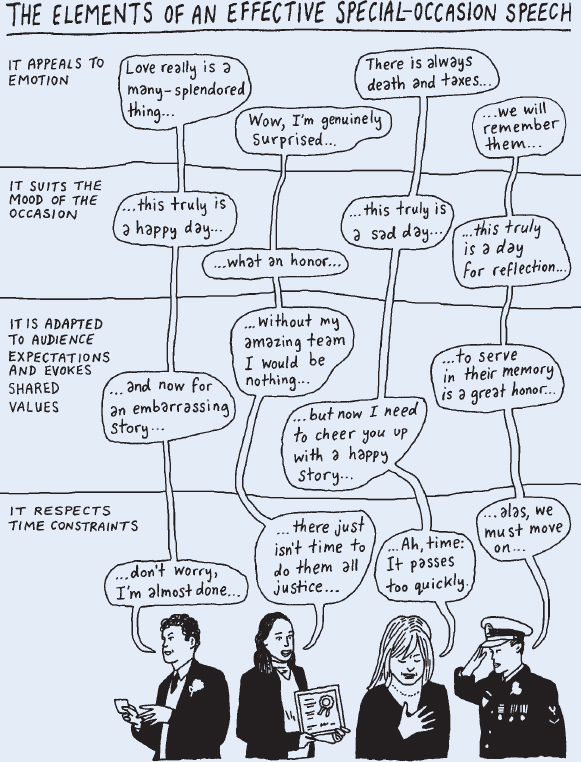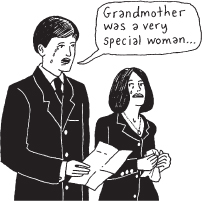Appealing to Your Audience’s Emotions
Printed Page 592
Successful special-occasion speeches often evoke emotional responses, such as laughter, tears, joy, and pride. Since many special occasions are intimately connected with important human events, your audience will likely be predisposed to experiencing a particular feeling during the occasion. Your job in giving the speech will be to signal when it’s time for that emotion to come to the surface.


For example, suppose you’re about to deliver a eulogy at a graveside service for your grandmother. Though generally designed to comment on a loved one’s passing, a eulogy can be presented in several formats: to celebrate, to mourn, to commemorate, or to honor.4 Let’s imagine that in this case your grandmother was a loving family woman, an accomplished artist, and a dedicated supporter of important causes. Family members and friends are gathered around the headstone under a canopy of maple and oak trees. Everyone present is reflecting on your grandmother’s life, and the sorrow of saying good-bye begins to settle around their hearts. The moment arrives for you to walk to the headstone and deliver the eulogy. You begin speaking. As you recall your grandmother’s special qualities and achievements and talk about how much she meant to you, your eyes fill and your voice breaks at times. The combination of your words and the expression of your grief gives the others gathered around the gravesite permission to let their own feelings well up. By enabling your family and friends to begin experiencing and expressing their grief, you help them embark on the mourning process—something we all must do when we have lost a loved one.
Click the "Next" button to try Video Activity 19.1, “Carter, Eulogy of Gerald Ford.”